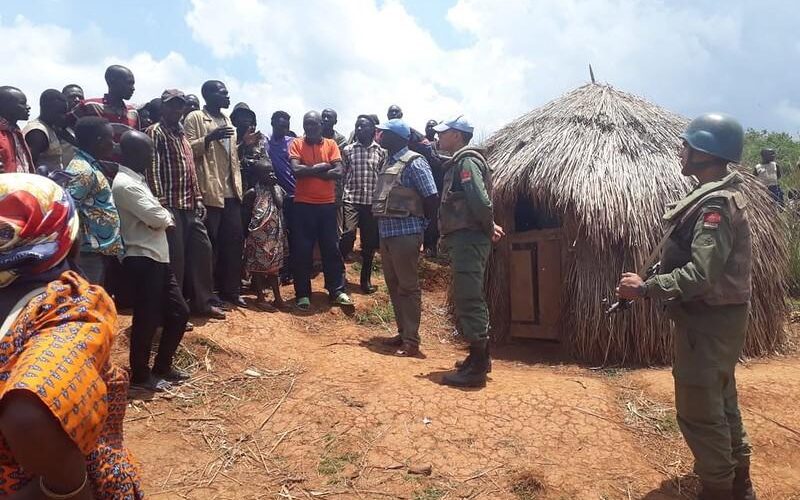With both Guinea and therefore the Democratic Republic of the Congo (DRC) reporting Ebola recurrences just every week apart, the planet Health Organization (WHO) today said it’s deploying 100 staff and, for Guinea specifically, has released $1.25 million to support local control efforts and prepare neighboring countries for possible spread.
The WHO’s African regional office also shared more details about the cluster in Guinea, where the entire currently stands at seven cases, three of them confirmed and 4 listed as probable. (Two days ago the Africa Centres for Disease Control and Prevention listed the totals at 17 cases and 5 deaths.)
In an update late yesterday, the WHO said two patients with confirmed infections are hospitalized in isolation, one in Conakry, the country’s capital, and one Gouecke in N’Zerekore prefecture. Five have died, including the index patient, a nurse from N’Zerekore prefecture within the southeast, an equivalent area where West Africa’s massive 2014-16 outbreak began.
Guinea cases include relations , healer
The nurse first sought look after her symptoms, including nausea and fever, on Jan 18, when she was initially diagnosed as having typhoid . Five days later after her condition worsened, she sought care again and was diagnosed with malaria; subsequent day she visited a standard healer. She died on Jan 28 and was buried without safety protocols in Gouecke.
The other six patients include five of her relations and therefore the traditional healer.
Earlier in the week , health officials said initial analysis showed the virus involved within the cluster is from the Zaire subtype, an equivalent one involved within the country’s earlier outbreak. However, genetic analysis is underway to shed more light on the source, like another introduction from an animal source.
So far, no cases are detected in other countries, but the WHO said the outbreak area is found at a travel crossroads, therefore the risk of the virus spreading to countries like Liberia and Ivory Coast is high.
Ebola vaccine deliveries, increased surveillance
At a WHO African regional office briefing today, Matshidiso Moeti, MBBS, the group’s director, said quite 11,000 vaccine doses in Geneva are being prepared to ship to Guinea, with more to be shipped from the us . Dr. Mohamed Lamine Yansane, senior advisor to Guinea’s health ministry, said samples are leaving Conakry today for further sequences in Senegal. He said the primary vaccine doses are due in Guinea on Feb 21, with immunization to start out the subsequent day.
Also, today at a WHO briefing in Geneva, Mike Ryan, MD, who leads its health emergencies program, said that employment is under thanks to form a coordinated vaccination strategy in African countries, which incorporates the Merck vaccine that has been used successfully in inoculating activities. He also said it’s possible that the strategy could include the Johnson & Johnson vaccine for related efforts, like vaccinating healthcare workers within the region.
In the DRC, where the amount of cases remains at four, vaccination began earlier in the week in Butembo.
So far, one symptomatic person traveled by taxi to Conakry, where 290 contacts are identified, of which 94% are evaluated, consistent with Moeti. Ryan added that no cases are detected outside of Guinea, and officials are on heightened alert.
Scale-up includes experts, aid deployment
In a separate statement, the WHO detailed plans to proportion the response to the Guinea and DRC outbreaks. it’ll have quite 100 staff on the bottom by the top of February, starting with a team of 8 from the WHO African regional office who are leaving soon.
“Our collective, quick action is crucial to averting an uncontrolled spread of Ebola amid the COVID-19 pandemic which has already pushed doctors and health facilities to the sting ,” Moeti said.
In other developments:
A humanitarian flight arrived on N’Zerekore on Feb 15, carrying medical equipment donated by the WHO and its partners.
In the DRC, 20 WHO experts are already on the bottom , and nearly 70 people have already been vaccinated.
Along with the $1.25 million from the WHO for response efforts in Guinea and neighboring countries, the United Nations has disbursed $15 million for responses within the Guinea and therefore the DRC, which covers preparedness steps in neighboring countries.

